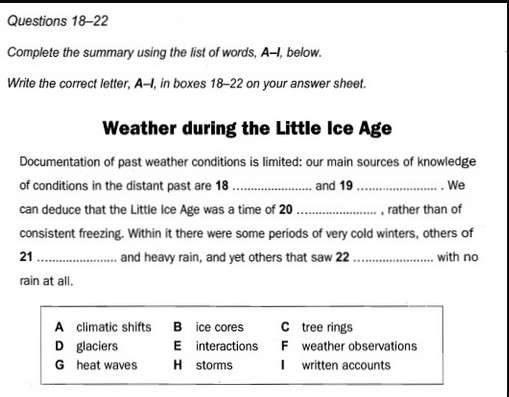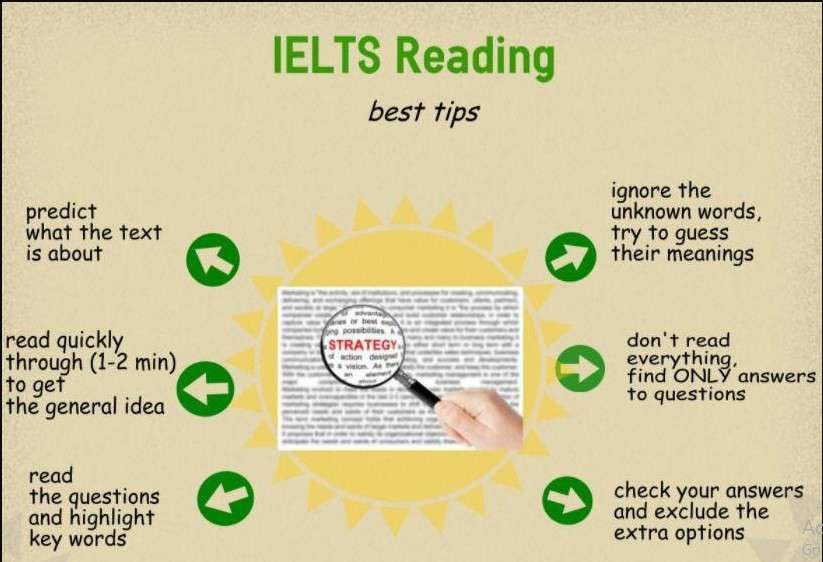How to master IELTS reading test is a thing of concern to many applicants due to its unpredictable nature. This reading test, assesses a wide range of reading abilities.
While the question structures remain consistent, the test texts can change from time to time between the Academic and General Training modules.
You will have approximately 60 minutes to give answers to 40 questions, and these questions, will come from different reading passages.
This post, is a tutorial that will give you clear guidance on how to reach your target score in the IELTS Reading test section.
Helpful Tips for IELTS Reading Test
In the paragraphs below, I will attempt to show you, a few helpful tips that will assist you while preparing for the IELTS reading test.
Timing is key
Time management is very important because you will not have the whole day to give your answers. You have only 1 hour to finish 40 questions, so you must manage your time wisely. I strongly suggest that students complete each section in at least 20 minutes.
This way, will afford you at least 16-17 minutes for reading and answering the questions, and another 3-4 minutes for transferring and reviewing your answers before submission.
Read the Instructions Carefully
In as much as you want to make good use of the time you have, you must ensure to do what is required of you in the IELTS reading test.
This is because, a lot of students, while attempting the IELTS Reading test miss out on points due to not reading the instructions correctly.
However, to prevent losing simple marks in the test, carefully read and understand the instructions before answering them. This sis so that you will not waste your time doing the wrong thing.
Do not Panic During the IELTS Reading Test
Have it in mind that this is a test and that in this test, some questions will be very easy, while others will be very hard. In recent past tests, some IELTS teachers have had to look up the answers for certain questions because they were so tough. So relax!
Make sure that you do not spend too much time on a difficult question. In any case where you do not know the answer immediately, simply move on to the next question.
You can return to the hard questions later on, maybe by then the answers will be available. Whatever the case, stay calm and manage your anxiety and nervousness well, so you do not mess up.
Also it is important that you know that it is okay to not have all the answers correctly, this will help you deal with the pressure you may feel during the IELTS test.
Do not Expect to Understand Every Word in IELTS Reading Test
If you do not understand a word in the test, you should look at the words and sentences around it for possible clues about what it means. If possible, you can move on and forget about it.
Focus on the words that relate closely to the question, and do not worry about the words you do not understand or spend too much time trying to get their meanings.
IELTS Reading Test Question Types
Let me quickly show you the types of IELTS reading test questions you may likely come across. This article will help you prepare better and also help reduce the tension you may feel on the test day.
Short Answer Questions
Some students, often refer to these questions as ‘comprehension’ questions, and English language classrooms make frequent use them.
Most students have answered such questions before, and as a result, most students usually perform well with them.
Multiple Choice Questions
Multiple choice questions assess your skill in understanding the main ideas within a text and subsequently seeking certain information.
To highlight the right section of the text, you must quickly recognize the main idea and answer the questions that follow it.
During this process, it might appear that two or three options are correct. Consequently, you must carefully read through the text to discover the specific information that will lead you to the correct answer.
Summary Completion type
These type of IELTS reading test questions test your ability to:
- to understand the general meaning of the summary
- to scan for the correct information in the text
- to be able to identify synonyms and paraphrases
You’ll receive either a list of words to fill the gaps or instructions to find answers in the reading text.
Your task is to place words from the list into the gaps, or if instructed, to use words from the text to fill the gaps. The image below is a clear example:

In the IELTS reading test, you will definitely see the question type called ‘matching sentence endings.’
Here, you will see a list of sentences that lack endings, with another list that have possible endings.
You are to match the incomplete sentences with the appropriate endings using the reading text.
While not as frequent, this question type is still important to study.
It tries to assess your ability to understand how the ideas in the sentences, relate to the main concepts in the reading text.
Sentence Completion in IELTS Reading Test
In sentence completion questions, you get to receive sentences with gaps and be instructed to fill in the gaps using words from the reading text.
These questions serve as both vocabulary and reading tests. They test your understanding of summary, synonyms and paraphrasing.
You will see instructions like: ”NO MORE THAN TWO WORDS” from the text for each answer. This means that you can write one or two words only. If you write any more than this, the answer is wrong.
You cannot change the words in this context, therefore you have to be smart enough to read, understand and provided the answers according to the options available.
True, False, Not Given type of test
‘True, False, Not Given’ questions wants you to determine the accuracy of information in a text.
You will see several almost correct and a correct statements and your job is to verify if they are true or false according to the text.
This is likely the most tasking and challenging question type in the IELTS reading test. The most important thing to remember is what the words ‘true’, ‘false’ and ‘not given’ actually mean and therefore understand what IELTS wants you to write.
Matching Sentence Headings
In the IELTS reading test, you will get to a section where you have to match headings to sections of text. This question type evaluates your skill in understanding the main idea of each paragraph.
Headings are brief sentences that give a summary of a paragraph’s information. Your answers will be to choose the heading that most accurately summarizes the content of the paragraph.
Conclusion
To master the IELTS reading test and achieve a good high score, you have to effectively combine effective strategies with consistent practice.
Please note that if you improve your skills in skimming, scanning, and understanding various question types, you will be better prepared to tackle the different questions the test will.
Additionally, try your best to make good use of the time you are given and manage it properly. Also, try to stay calm and relaxed under pressure, because it will help boost your overall performance.
Furthermore, it is important and crucial to be consistent and practice for the test using different reading materials and understand the question formats. This will boost your confidence level and make you approach the test with courage. Good luck!
Helpful Guides
- IELTS Test: Reasons, Preparation, Syllabus and Documents You Need
- IELTS Exam: What is IELTS, Test Requirements, Application Process and Types
- Preparing for IELTS Test, What to do to Improve Your Scores
- Write a Reference Letter for any Country’s Immigration with this Guide





![Top Kubernetes Courses Online – IT & Software Development [Udemy] Top Kubernetes Courses Online - IT & Software Development [Udemy]](https://hybridcloudtech.com/wp-content/uploads/2021/02/Top-Kubernetes-Courses-Online-IT-Software-Development-Udemy-100x70.png)

